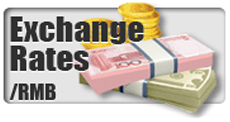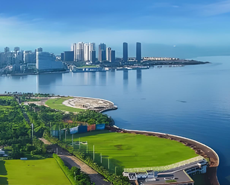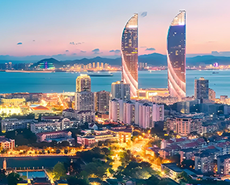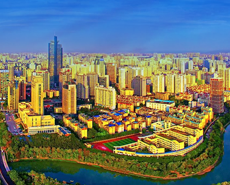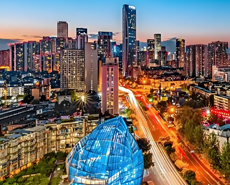
South African V-Ti magnetite to optimize cost for Chinese vanadium enterprises
----Interview with Thomas Baring
General Manager
Pelagic Resources Pty Ltd
General Manager
Pelagic Resources Pty Ltd
PELAGIC’s Vanadium-Titanium Magnetite locates in Limpopo province, South Africa. It’s the world's largest declared mineral resource to be developed, with about 662.3 million tons of total reserves. The surrounding infrastructure includes ESKOM-operated high-voltage power lines and substations, the Deamber Dam, and the railway transportation system.
Asian Metal: Mr. Thomas Baring, thank you for accepting interview from Asian Metal. Firstly, please give us a brief introduction of your company.
Thomas Baring: Since the foundation in 2013, PELAGIC has created a mature mining and marketing network of metallic products, including manganese, chromium and vanadium, and also established good international partnerships between suppliers, Banks and end consumers. PELAGIC’s heard quarter locates in Singapore. We have regional offices in South Africa and Zimbabwe, and the market development agency in China. South Africa has the largest Vanadium-Titanium Magnetite reserves, and China has the largest consumer market. It’s the most important market strategy for PELAGIC to expand the distribution channels of vanadium products between South Africa and China.


Asian Metal: South Africa is world-known for its reserve of vanadium-titanium magnetite resources. How is the resource grade in local area?
Thomas Baring: PELAGIC’s Vanadium-Titanium Magnetite could be purified into VTM concentrate with V2O5 content between 2.0-2.2% and iron content of 58.5%, which can effectively reduce the cost of quenching vanadium metal.
Asian Metal: Australia is comparable to South Africa in vanadium resources. What are South African vanadium-titatinium magnetite’s advantages over those in Australia in terms of cost and quality?
Thomas Baring: Compared with Australia, there is no doubt that vanadium-titanium magnetite from South Africa has higher quality, including higher V2O5 and iron purities. On account of the objective situation of transportation in South Africa, PELAGIC plans to achieve the shipment of 150,000 to 180,000 tons per ship within the foreseeable period of time to effectively reduce the shipping cost.
Asian Metal: Which regions do you sell your company's current vanadium-titanium magnetite resources to? How about the main customer group?
Thomas Baring: PELAGIC's main target customers are the large and medium-sized steel mills in coastal China, as well as a variety of vanadium-bearing pig iron smelters and ammonium metavadate producers who could use Vanadium-Titanium Magnetite directly.


